
The first object that catches my eye in Monika Correa’s flat on Nepean Sea Road occupies a chunky part of the living room. The horizontal loom has been part of the space that has doubled as her studio for over fifty years.
It was in 1962, while accompanying her husband, the famous architect Charles Correa, to Boston that Monika stopped over in Finland. Charles had a four month-long teaching stint at MIT. It was this trip that set her on a journey that would define her life. She had been enthralled by the ryijy, traditional Finnish tufted rugs, that she had seen at a weaver’s workshop in Helsinki. Monika was keen to learn weaving and through György Kepes, a painter and professor at MIT, she got a chance to meet Marianne Strengell, one of the most noteworthy mid-century textile designers. Strengell had recently retired as head of the Cranbrook Academy’s esteemed textile department after teaching for over 20 years. She decided to take Monika under her wing.
Fast forward to 2013. Weaving can be taxing on the shoulders and the back. Monika (b. 1938) had been working quietly but consistently. Thanks to the insistence of her husband and the persuasive powers of gallerist Shireen Gandhy, she spent three years creating a new body of seminal work that was presented as a solo at Chemould Prescott Road. The aging loom was being resurrected.
Homage to Kepes (2012) was one of the 34 works exhibited at the show. It was bold and stark, and the luminous colours were reminiscent of Rothko’s canvases. The weaves not only expressed a gratefulness to Kepes but also brought together two features of Monika’s journey as a weaving artist. The fuchsia loop piles mined the flourish of Finnish long-tufted tapestries and explored the desire to further plumb the medium; the central orange and red meandering weaves expressed the dynamic frames cape of memories in a technique she had cultivated over time.
Denne historien er fra December 2019-utgaven av Art India.
Start din 7-dagers gratis prøveperiode på Magzter GOLD for å få tilgang til tusenvis av utvalgte premiumhistorier og 9000+ magasiner og aviser.
Allerede abonnent ? Logg på
Denne historien er fra December 2019-utgaven av Art India.
Start din 7-dagers gratis prøveperiode på Magzter GOLD for å få tilgang til tusenvis av utvalgte premiumhistorier og 9000+ magasiner og aviser.
Allerede abonnent? Logg på

Parts, Wholes And The Spaces In Between
Sonal Sundararajan introduces Samira Rathod's free-spirited and rebellious explorations in the world of architecture, furniture and design.
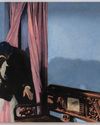
"The Fine Art of Going to the Pictures."
Dr. Banerjee in Dr. Kulkarni's Nursing Home at Chemould Prescott Road brings together 26 paintings featuring a series of dramatic scenes from Hindi and Bengali films. In conversation with Abhay Sardesai, artist Atul Dodiya talks about childhood trips to movie halls, painted figures gripped by tension, and the closeness and remoteness of cinematic images.

"To Finally Have Something of Your Own to Mine."
Dayanita Singh is the recipient of the coveted 2022 Hasselblad Award. Keeping the photograph at the centre, she speaks to Shreevatsa Nevatia about books, book objects, photo novels, exhibitions and museums.
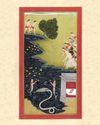
OF DIVINE LOSS
Shaurya Kumar explores the relationship between the subject and object of devotion, finds Aranya.
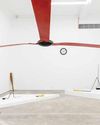
THE PAST AND ITS SHADOWS
Neha Mitra visits two shows and three artists in Mumbai.
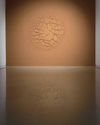
FORCE OF NATURE
Alwar Balasubramaniam dwells on absences and ephemeralities in his new work, states Meera Menezes.
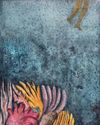
SHAPES OF WATER
Devika Sundar's works delineate the murky, malleable boundaries between the human body and the organic world, says Joshua Muyiwa.

INTIMATIONS OF INTIMACY
Sunil Gupta shares his journey with Gautami Reddy.
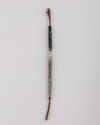
THE FRACTURED PROSPECT
Nocturnal landscapes as ruins in the making? Adwait Singh looks at Biraaj Dodiya's scenes of loss.
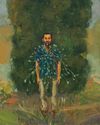
TEETERING BEYOND OUR GRASP
Meera Menezes traces Mahesh Baliga's journey from Moodabidri to London.